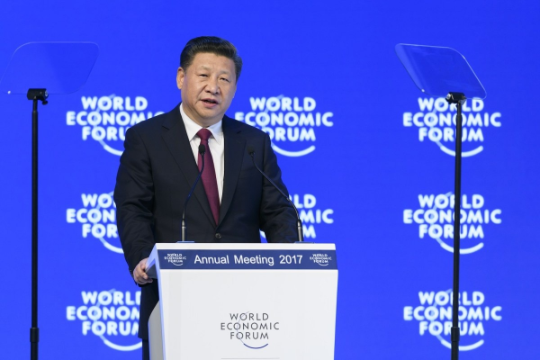Biden must ditch Trump’s nationalism
Nigel Green | 17 November 2020
Otherwise, the 'new CEO of the US' must expect Asia’s economic supremacy
Joe Biden might have won the keys to the White House, but unless he moves quickly to reverse the outgoing Trump administration’s nationalist agenda, American economic dominance is likely to be replaced by an emerging and fast-growing Asia.
Since coming to power in 2017, under the slogan “America First,” Donald Trump has set the US – currently the world’s largest economy – on a path that has been vehemently opposed to globalization.
At rallies he has said that he is a “proud nationalist,” and he used this phrase to contrast himself with previous presidents who negotiated trade deals, commerce agreements and immigration laws that involved the interests of other nations in addition to those of the US.
He has also defended the idea of putting his country above others during speeches at the United Nations, an organization that aims to have a unified global agenda, telling the General Assembly in 2018, “We reject the ideology of globalism and embrace the doctrine of patriotism.”
Similarly, the US has been surrendering its influence in multilateral bodies such as the World Trade Organization, the North Atlantic Treaty Organization, and the World Health Organization. It should come as no surprise that China, among others, is filling the vacuum.
Trump’s agenda has been in stark contrast to the major economies of Asia – namely China and Japan, the world’s second- and third-largest economies respectively – which have been becoming increasingly internationalist.
During the Trump administration, Chinese President Xi Jinping has said, “Sealing off and excluding others is not the correct choice.… China will not shut the door to the outside world but open more.… We’re going to ensure the fruits of development are shared.”
Meanwhile last year, Japan’s new emperor, Naruhito, also highlighted the importance of globalization.
Five to 10 years ago, it would seem unimaginable that China, and not the US, is more keen to embrace globalization – a word used by economists to describe international flows of free trade, investment and people.
Globalism reflects the continuing expansion and mutual integration of market frontiers, and according to a UN report “an irreversible trend for the economic development in the whole world.”
The process of economic globalization is also the process of global industrial restructuring and readjustment.
Surely, this is fundamental for any US president looking for his country to secure sustainable, long-term financial growth? Well, Trump’s agenda seemingly turned its back on this, and by doing so, on the future itself.
As such, if Biden wants to sustain America’s 75-year leadership of the international order, which is rooted in the fact it has the largest and most influential economy, he needs to embrace his own global credentials and ditch the nationalism path.
He needs to be a different kind of “CEO of the US” than his predecessor.
This is especially true as the world is readjusting faster than ever because of the devastating fallout of the Covid-19 pandemic, the blistering pace of the digitization of our lives, and the climate crisis.
But also, importantly, because the likes of China are already forging ahead with their future-focused globalist agenda, which has helped them with their impressive economic recovery.
Nigel Green founded de Vere Group in 2002 from a single office in Hong Kong after discovering a niche market for expatriates in the financial services sector. Since then, it has grown to become one of the largest independent financial advisory organizations in the world with offices and clients across the globe.
This article was originally published on Asia Times.
Views in this article are author’s own and do not necessarily reflect CGS policy.
